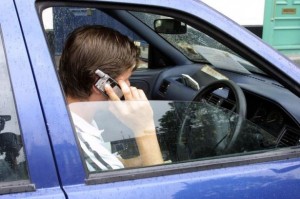Legal Advice for UK Motoring Offences
General Practice Solicitors who deal with multiple areas of criminal law often aren’t fully familiar with the intricate legal arguments that can be used to defend your case if you have been accused of any of the driving offences below;
Failing to provide driver information
If you are caught committing a road traffic offence, you will be sent a S172 request.
Failing to respond can lead to 6 penalty points on your driving licence.
The available defences you can use are S172(4) and Section172(7)(b) RTA 1988.
To establish the drivers’ identity at the time of offence, you will have to demonstrate to the court that you used reasonable diligence, or that you didn’t receive the S172 driver identity request at all.
Valid Car Insurance Motoring Offences
When stopped driving with no motor insurance, you are assumed to be at fault and therefore guilty, irrespective of your mitigating circumstances.
When found guilty, or if you plead guilty to driving with no insurance then you will get 6 – 8 points.
Drivers are often unaware that their insurance broker has cancelled their motor insurance and not notified them.
If you can show you genuinely and honestly believed you had valid motor insurance, you have a Special Reasons Argument.
Driving Speeding Offences
In addition to incurred court costs for your speeding offence, speeding also carries the following, a fine, 3 – 6 penalty points on your driving licence and a possible discretionary ban.
Expert evidence is required if you are going to successfully defend your speeding allegations in court. Find out if you have a legitimate means to defend your speeding allegations by asking Patterson Law Speeding Offence Specialists for a free no obligation question about your specific offence.
Drinking and Driving
The drink driving limit in the UK is 35mg in breath. A driving ban of one year is the minimum penalty for a drink drive conviction.
If you can prove that you were not the driver of the car, or that you weren’t in a public place, or that you consumed the alcohol after driving then you have a valid defence for your drink driving allegation.
Avoiding a drink driving disqualification is also possible if you can prove that you weren’t aware that you drank the alcohol, that it was an emergency situation or that you drove only a very short distance.
Drunk in Charge Offences
Drunk in charge of a vehicle requires that the prosecution demonstrate that you were above the legal drink driving limit and that you were also in charge of the motor vehicle at the time.
A viable defence is to show that you were not intending to drive the vehicle until you were under the drink drive limit again.
If the court finds you guilty then you will be given either ten points and possibly a discretionary driving licence ban.
Driving with a Mobile Phone
The mobile phone have to be held while being used in order for an offence to be committed.
Different Magistrates take different viewpoints on this offence.
You are still driving even when stationary at junctions or in a temporary hold up.
Without Due Care Offences
Your driving ability must be proved to have fallen well below the level of a competent and careful driver if you are to be convicted of driving without due care.
Some of the offences covered by driving without due care include low speed bumps as well as undertaking on a motorway.
At the discretion of the police force in question you can be offered a Driving Improvement Course as an alternative to attending Court.
Fail to Stop
If, following an accident, damage was caused to a person, another vehicle or to property, then you have a legal duty in accordance with S 170 Road Traffic Act 1988 to stop and provide your details.
In circumstances where you weren’t able to provide your details at the time, you are required to report the accident at a police station as soon as is practicable and at most within 24 hours.
With either a discretionary driving licence ban or 5 – 10 driving penalty points this is a serious offence.
You would have a possible defence if you weren’t aware that damage had been caused and you can show that it would have been reasonable that you didn’t know that you had in fact been involved in an accident.
For the most serious examples of both these motoring offences, you can be given community service or a prison term.
Dangerous Driving Motoring Offences
Dangerous driving convictions require the prosecution to show that the standard of your driving fell far below the standard required. Also, it should be clear to a competent driver that the driving is dangerous.
The minimum penalty for dangerous driving is a 1 year licence disqualification, including an extended re-test as well as a potential custodial sentence.
Driving without a Licence
This offence is frequently misunderstood by drivers.
Driving without having visible L plates, or driving without ever passing a driving test are two examples of endorsable offences of this type.
Should the Driver and Vehicle Licencing Agency request that you return your current licence to them and they suspend your entitlement, this would be non-endorsable.
Many people believe that ‘no licence’ means that your insurance is null and void, but that is wrong.
If you are charged, make sure that you get professional assistance because Prosecution teams often make errors with this issue regarding whether driving licence penalty points are applicable to this motoring offence or not.
